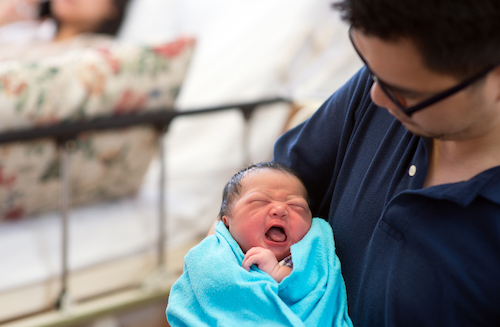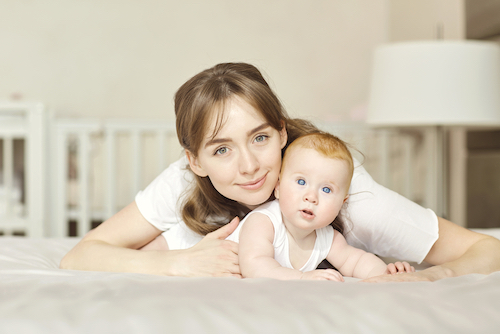Belgium has high standards of healthcare, and maternity care is no exception. Although there are some differences between what you will be offered via the state system versus private healthcare, on the whole you can expect excellent treatment regardless.If you are an expat in the country, and expecting a baby, you will find that you have a number of options.
How to decide on a birth plan
A birth plan is a list of what you would like to have happen in labour and beyond, written so that your doctor and midwife know what your wishes and expectations might be. You may wish to consider some of the following points:
• where do you want to give birth?
• who do you want to have with you (e.g. your partner)?
• what kind of birth do you want (e.g. vaginal birth or a Caesarian: if the latter is planned, you may need to check whether it’s covered by your insurance policy)
• do you need any birthing aids?
• do you want pain relief, and if so, what kind?
• what kind of birthing environment would you prefer?
Note that birth plans are not routine in Belgium so you may need to explain your wishes to your maternity care provider, and it might also be necessary to translate your birth plan into the language of your region.
In Belgium, you have a number of choices as to where you give birth. You may select:
• a home birth (but be aware that this is not so common in Belgium)
• the maternity unit in your local hospital
• a private hospital
• a maison de la naissance (a specialist clinic)
Belgian maternity care
If you are pregnant, and in a Flemish-speaking region, consult the Kind en Gezin, which is the local childcare and welfare agency. They will be able to give you free advice and support if you are pregnant or have any children under the age of three. In French-speaking areas, the Office de la Naissance de l’Enfance will carry out a similar function, but you can also consult your GP. If you are in Ostbelgien, then an organisation called Kaleido will be of help, and if you live in Brussels, you can consult the Brussels Childbirth Trust who are English-speaking.
These organisations, or your GP, can refer you to a gynaecologist. Either your doctor or your gynaecologist, or both, will be your main adviser throughout your pregnancy. If you are in one of the French-speaking areas, this is likely to be your gynaecologist rather than your GP.
If for some reason you are not covered by the national insurance scheme, then consult the Public Social Welfare Centre (Les Centres Publics d’Action Sociale/CPAS or Openbaar Centrum voor Maatschappelijk Welzijn/OCMW): you maternity care will be covered in Belgium even if you are uninsured.
Due to the high number of expats in Brussels in particular, thousands of babies are born to expat residents of Belgium every year and the system is well able to cope with this. Benefits for mums are generous, with an initial birth grant (startbedraag/allocation de naissance) of over €1,200 for the first child and over €900 for any additional children, and you will also find that the bulk of your maternity costs are covered by state health insurance: check with your health insurance provider (mutuelle or ziekenfonds) as to the levels of care and treatment that your policy covers.

During pregnancy, if you reside in one of the French speaking regions, you will have check-ups with a Medical Social Worker (travailleur medico-social/TMS): this is usually organised by one of the maternity organisations listed above. You will be sent a Carnet de la Mère: a maternity booklet.
In Flemish regions, your check-ups will be with a nurse and you will be able to attend pre-natal classes. Generally, the check-ups are monthly until later on into the pregnancy, when they will become fortnightly, and then weekly. If you are under the national insurance scheme, then you’ll find that blood tests and up to three ultrasounds are covered. However, you may need to pay for some tests, such as for Down’s Syndrome, and these may not be reimbursed: check with your provider.
Make sure you take your eID card and proof of health insurance with you to the hospital, as proof that you’re registered with the national or a private scheme. Delivery costs in Belgium are, on average, €2,500-4,000, so you do not want to find yourself facing an unexpected bill.
Once you have given birth, you are likely to remain in hospital, with your gynaecologist and a physiotherapist on hand for up to five days and the maisons de naissance will also offer post-natal classes. One expat mum reports that hospitals insist that you breastfeed unless there is a specific reason against it.

If you give birth at home, it will be your midwife who will remain with you and who will carry out post-natal check-ups. Home births require the presence of two midwives, but only one is required for the post-natal checks. Your baby will be issued with a health record card to keep track of its development.
You will need to register the child’s birth within 15 days at the town hall (maison communale) nearest to the birthplace. For this, you will need a certificate from the hospital, your ID cards, and if you are married, your marriage certificate as well.
The baby’s father will get 10 days’ paternity leave, whilst the mother will get 15 weeks, but she is also entitled to 6 weeks’ prenatal leave (5 are voluntary). The mother will also be granted 82% of her full salary for the first 30 days and then 75% for the remainder (subject to a cap which is currently set at €104.80 per day), from her insurance provider. If you are self employed you will be covered for 12 weeks, at a flat rate of around €475 for full time self employer workers.
Will the baby be a Belgian citizen?
In order for your baby to be a Belgian citizen, either you or the child’s other parent must have been born in Belgium and lived there for at least five years in the decade before the baby’s birth.
Would you like to share your experience of life abroad with other readers? Answer the questions here to be featured in an interview!

